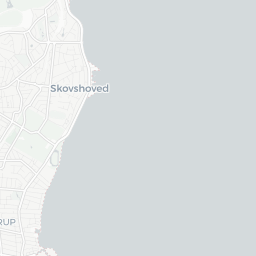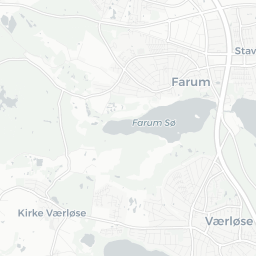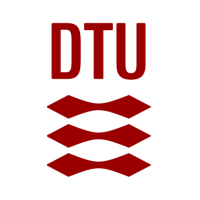Postdoc in Internet of Underwater Things - DTU Compute
Danmarks Tekniske Universitet (DTU)
Join our team as a Postdoc to work in underwater IoT at DTU Compute, focusing on cutting-edge research in underwater and terrestrial Low Power communication to enable innovative ecosystems for renewable energy technologies and infrastructure in ports and the maritime sector.
A 2-year Postdoc in Internet of Underwater Things (IoUT) is available in the Embedded Systems Engineering (ESE) research section at DTU Compute, where you can help build up and shape our research activities on acoustic and terrestrial communication for IoT and IoUT systems led by Assistant Professor Charalampos Orfanidis and Associate Professor Matthias Bo Stuart. In the CETP POTENT project, we are working with Living Lab Networks including academic and industrial partners and ports to accelerate the green energy transition by investigating the use of ports as energy hubs that also act as green energy producers driving the societal transition towards net zero.
In this position, you will build on your expertise in IoT and low-power computer and communication systems to research IoT systems and architectures for use in and around ports, from the nearby industries in the hinterland to the offshore windfarms, energy islands, and more. This includes possibilities to do research on communication using acoustic, optical and radio signals for underwater [1,2] and above-water [3] devices, respectively, as well as in the exciting and emerging field of cross-medium communication techniques. The position has some flexibility for you to focus on, e.g., various aspects of the communication technologies, energy efficiency or the reliability of the system. Your application should include a clear and specific statement on your research interest within the area.
[1] Junsu Jang and Fadel Adib. 2019. Underwater backscatter networking. In Proceedings of the ACM Special Interest Group on Data Communication (SIGCOMM '19). Association for Computing Machinery, New York, NY, USA, 187–199. https://doi.org/10.1145/3341302.3342091.
[2] Chi Lin, Jianan Lin, Jie Xiong, Qiwei Wang, Lei Wang, Guowei Wu, Xin Fan, and Zhongxuan Luo. 2024. UWBeacon: Lighting up Centimeter-Level Underwater Positioning. In Proceedings of the 30th Annual International Conference on Mobile Computing and Networking (ACM MobiCom '24). Association for Computing Machinery, New York, NY, USA, 1222–1236.
[3] C. Orfanidis, L. Marie Feeney, M. Jacobsson and P. Gunningberg, "Cross-Technology Clear Channel Assessment for Low-Power Wide Area Networks," 2019 IEEE 16th International Conference on Mobile Ad Hoc and Sensor Systems (MASS), Monterey, CA, USA, 2019, pp. 199-207, doi: 10.1109/MASS.2019.00032.
Responsibilities and qualifications
As a Postdoc at DTU Compute, you will work in the Embedded Systems Engineering section and do research in the Io(U)T field. You will work with colleagues in the section and in our network of strong academic and industrial partners as well as ports through Living Lab Networks. Your contributions will include:
- Doing cutting-edge research in IoT and IoUT devices, communication, and system
- Publishing your research in high-impact journals and conferences.
- Collaborating with academic and industrial partners, both nationally and internationally.
- Engaging in the mentorship and supervision of BSc and MSc student projects, co-supervising PhD students.
- Contributing to the teaching at the department to build your teaching portfolio for applying to academic positions.
- Participating actively in the research community, including attending and presenting at conferences.
As a formal qualification, you must hold a PhD degree (or equivalent), in a field related to one or more of the general areas of Internet of Things, Low Power Wireless Communication, Singal Processing, Low Power Electronics, Wireless Sensing, Low-Power System Design, Machine Learning & Edge Inference, Underwater acoustic communication.
Furthermore, you have a proven record of publishing in high-impact venues and possess excellent collaboration and communication skills.
We offer
DTU is a leading technical university globally recognized for the excellence of its research, education, innovation and scientific advice. We offer a rewarding and challenging job in an international environment. We strive for academic excellence in an environment characterized by collegial respect and academic freedom tempered by responsibility.
Salary and terms of employment
The appointment will be based on the collective agreement with the Danish Confederation of Professional Associations. The allowance will be agreed upon with the relevant union.
The period of employment is 2 years. The starting date is according to mutual agreement, with a preferred date in the fall of 2025. The position is a full-time position at the DTU campus in Kongens Lyngby, slightly north of Copenhagen.
You can read more about career paths at DTU here.
Further information
Further information may be obtained from Asst. Prof. Charalampos Orfanidis and Prof. Paul Pop, head of Embedded Systems Engineering section at DTU Compute.
You can read more here about working in our section, at DTU and in Denmark.
If you are applying from abroad, you may find useful information on working in Denmark and at DTU at DTU – Moving to Denmark.
Application procedure
Your complete online application must be submitted no later than 15 June 2025 (23:59 Danish time). Applications must be submitted as one PDF file containing all materials to be given consideration. To apply, please open the link "Apply now", fill out the online application form, and attach all your materials in English in one PDF file. The file must include:
- Application (cover letter)
- CV
- Academic Diplomas (MSc/PhD – in English)
- List of publications
- Research statement, i.e., what research topics do you plan to work on
Applications received after the deadline will not be considered.
All interested candidates irrespective of age, gender, disability, race, religion or ethnic background are encouraged to apply. As DTU works with research in critical technology, which is subject to special rules for security and export control, open-source background checks may be conducted on qualified candidates for the position.
Embedded Systems Engineering (ESE) is one of the 10 research sections at DTU Compute. Our mission encompasses the creation of insights that allow the development of context-aware, distributed, and embedded cyber-physical systems, with a particular focus on Internet-of-Things (IoT) and the computing continuum eras. Our vision is to pioneer advancements in high-tech distributed and embedded systems technology, driving change, and contributing positively to society. We strive for a future where our research and innovations form the cornerstone of technological advancements, and we're excited to include more brilliant minds in our journey. See our publications and projects.
DTU Compute
DTU Compute – Department of Applied Mathematics and Computer Science – is an internationally unique academic environment with 400 employees and 10 research sections spanning the scientific disciplines of mathematics, statistics, computer science, and engineering. We offer education ranging from bachelor's degrees to PhDs and support continuing education, all rooted in these scientific disciplines. We conduct research, teaching, and innovation of a high international standard – producing new knowledge and technology-based solutions to societal challenges. We have a long-term involvement in applied and interdisciplinary research, big data and data science, artificial intelligence (AI), the Internet of Things (IoT), smart and secure societies, smart manufacturing, and life sciences. We also collaborate with other universities, external organisations, and companies both in Denmark and abroad. At DTU Compute, we believe in a diverse and inclusive workplace with a flexible work-life balance. Read more about us at www.compute.dtu.dk.
Technology for people
DTU develops technology for people. With our international elite research and study programmes, we are helping to create a better world and to solve the global challenges formulated in the UN’s 17 Sustainable Development Goals. Hans Christian Ørsted founded DTU in 1829 with a clear mission to develop and create value using science and engineering to benefit society. That mission lives on today. DTU has 13,500 students and 6,000 employees. We work in an international atmosphere and have an inclusive, evolving, and informal working environment. DTU has campuses in all parts of Denmark and in Greenland, and we collaborate with the best universities around the world.
Adresse:
Opslaget er indhentet automatisk fra virksomhedens jobsider og vises derfor kun som uddrag. Log ind for at se det fulde opslag eller gå videre til opslaget her:















